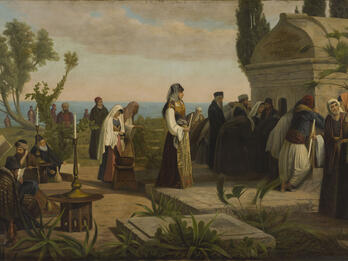The Symptoms of the Time
Zechariah Fraenkel
1845
By emphasizing religious activity, Judaism is completely tied to life and becomes the property of every individual Jew. A religion of pure ideas belongs primarily to the theologians; the masses who are not adapted to such conceptions concern themselves little with the particulars of such religions because they have little relationship to life. On…

Related Guide
European Rabbinic Scholarship
Despite the challenges of the early modern period, rabbinic scholarship flourished in Central and Eastern Europe in the latter half of the eighteenth century and the first half of the nineteenth century.
Related Guide
Religious Movements in the West and in the Ottoman Empire
Jewish rituals, synagogue spaces, and the prayer service itself came under increasing scrutiny in light of the call for modernization.
Creator Bio
Zechariah Fraenkel
Rabbi and theologian Zechariah Fraenkel laid the ideological foundations of Conservative Judaism through a scholarly approach that balanced reform and tradition. Born in Prague, Fraenkel received a secular and rabbinical education. After earning his doctorate in Budapest, he held numerous Jewish public positions, including chief rabbi of Saxony and later president of the Rabbinical Seminary in Breslau. Supporting Jewish emancipation, his 1840 critique of antisemitic Jewish oaths in courts of law was pivotal in ending the practice in Saxony. Fraenkel developed the concept of “positive historical Judaism,” advocating for the Jewish acceptance and pursuit of historical and scholarly research. Asserting that Jewish identity was grounded not only in religion, but also culture and history, he wrote a number of significant Jewish historical and theological texts.


